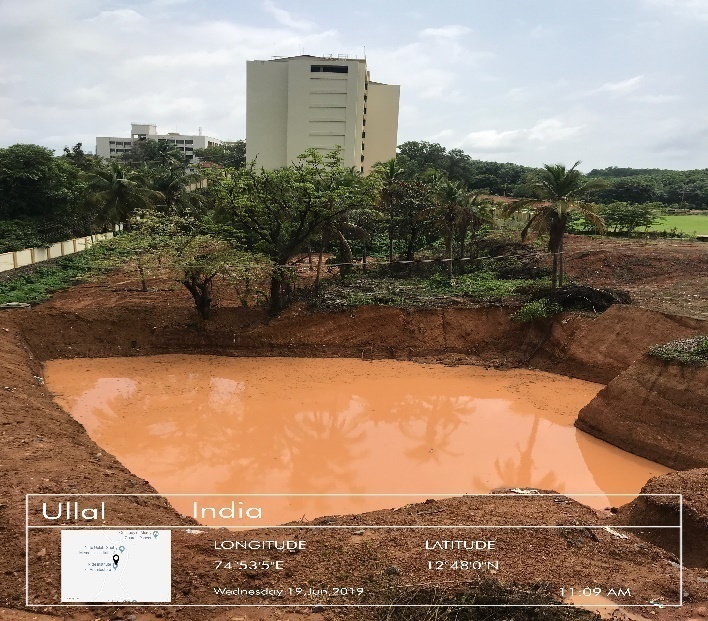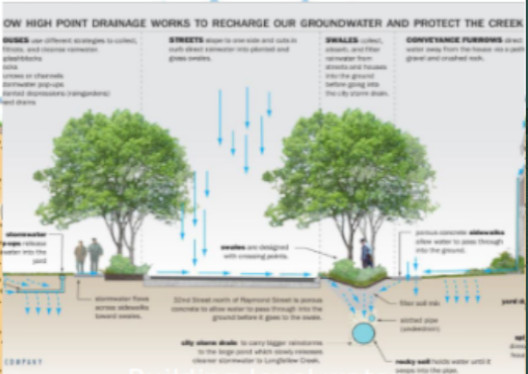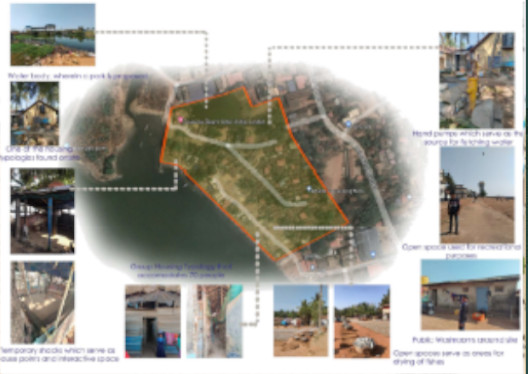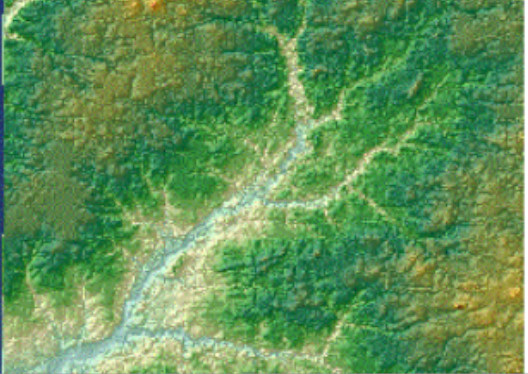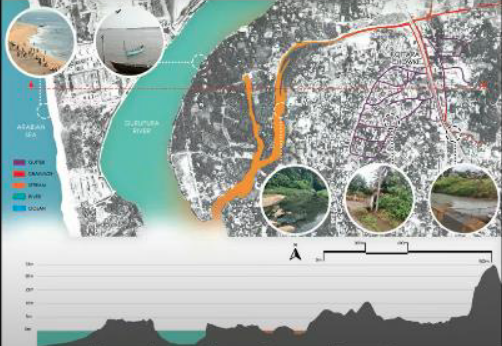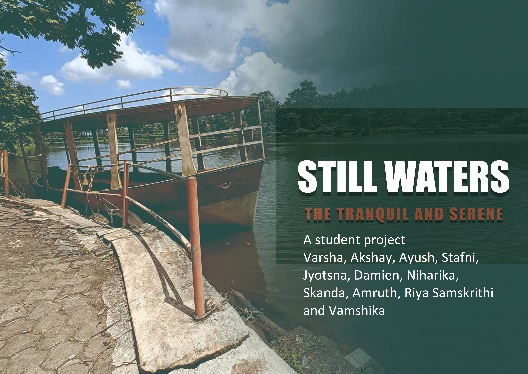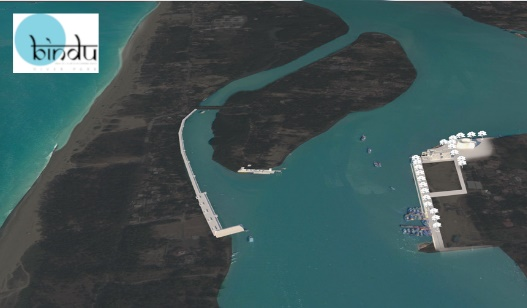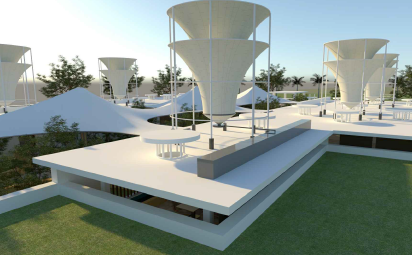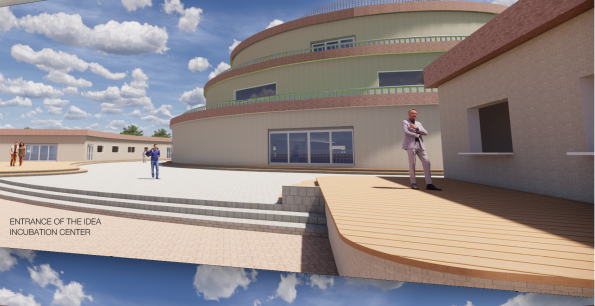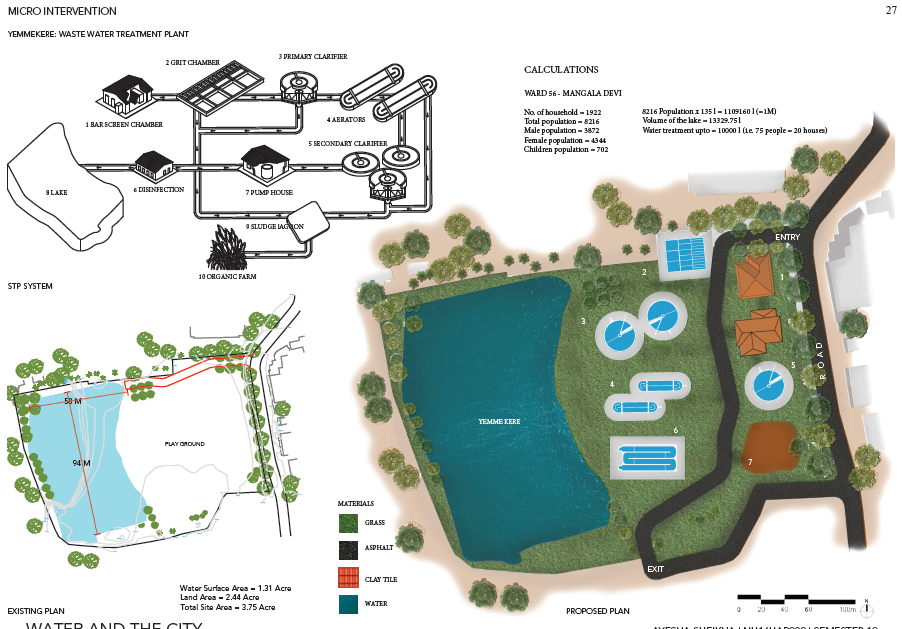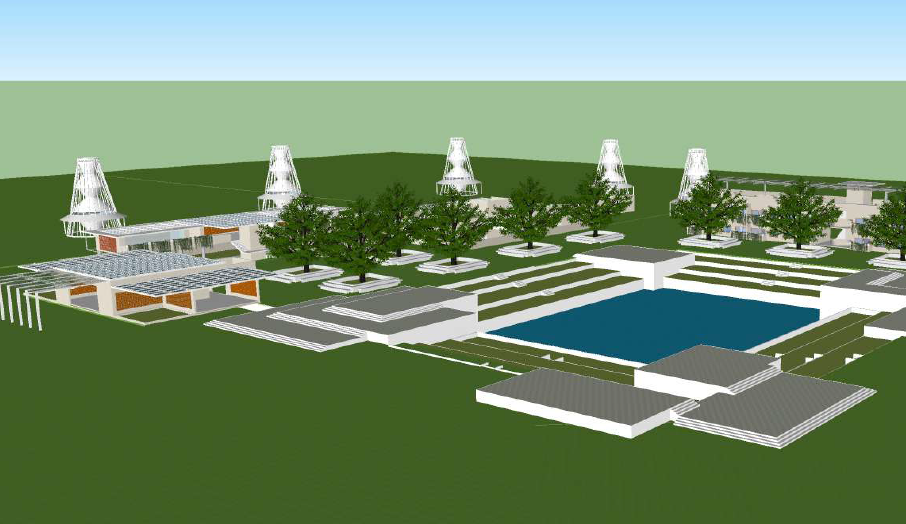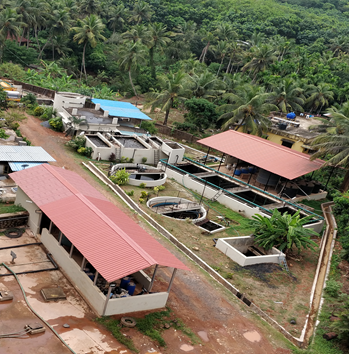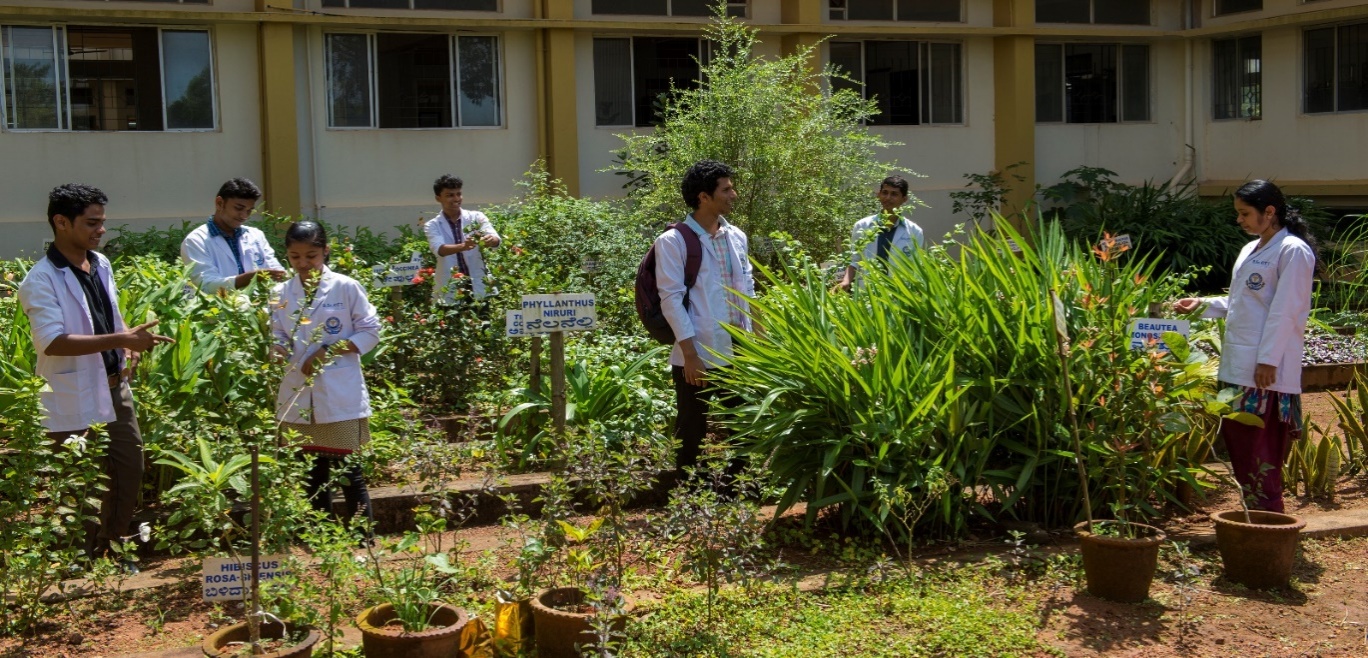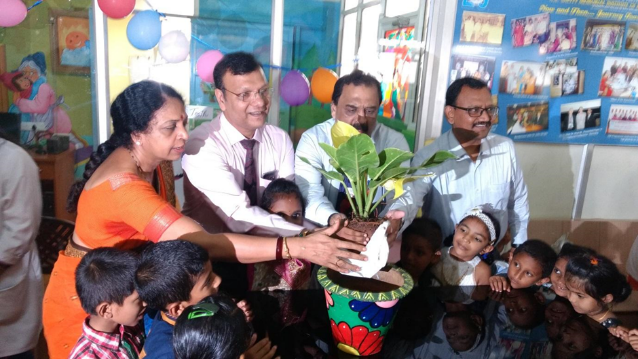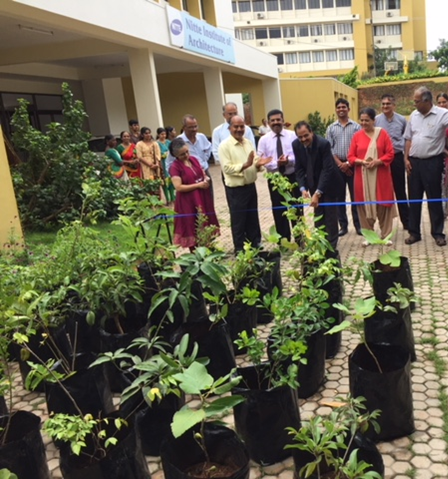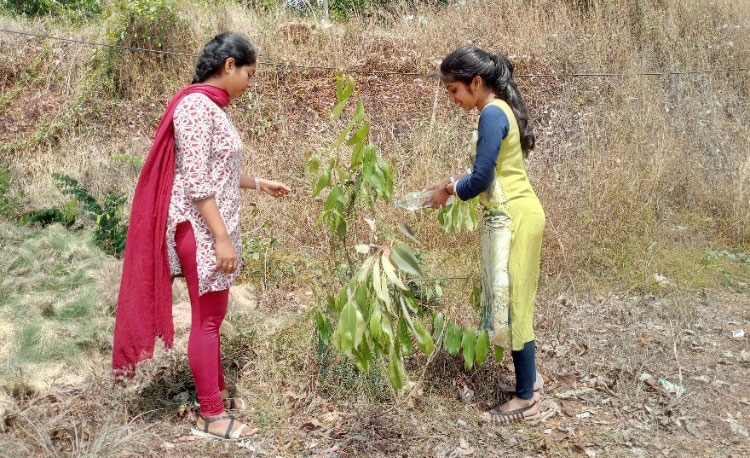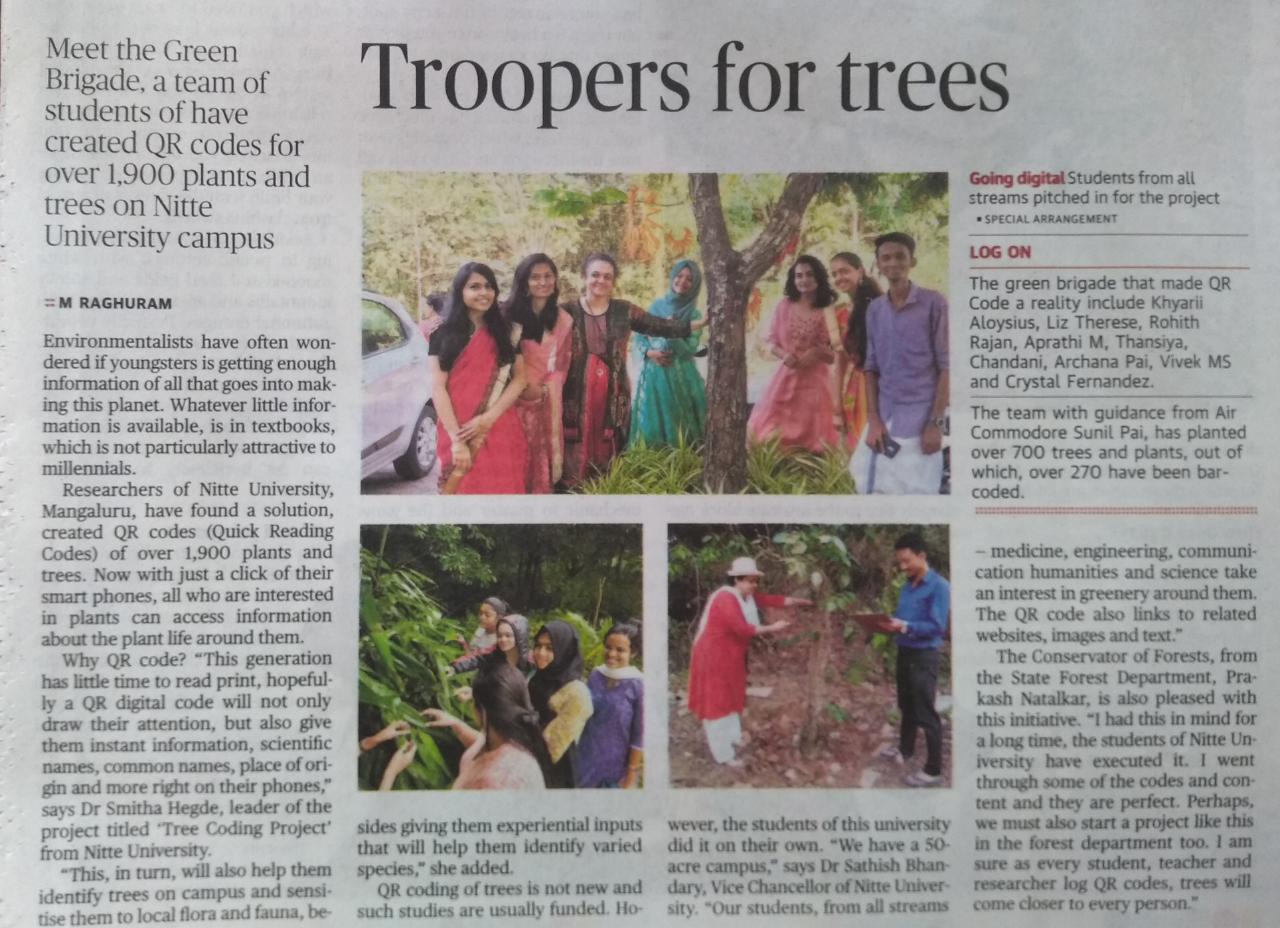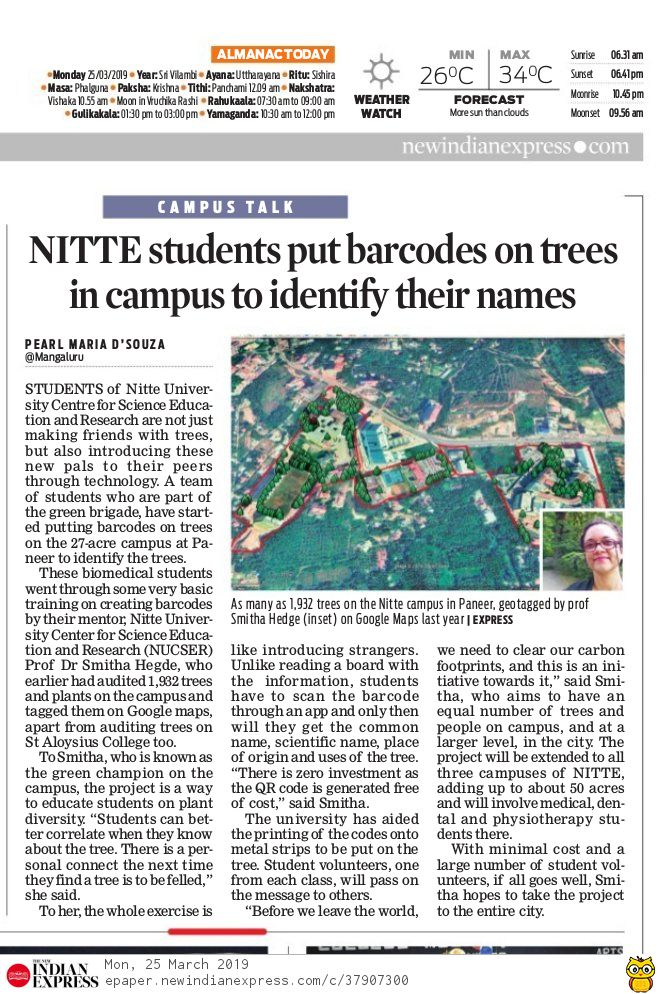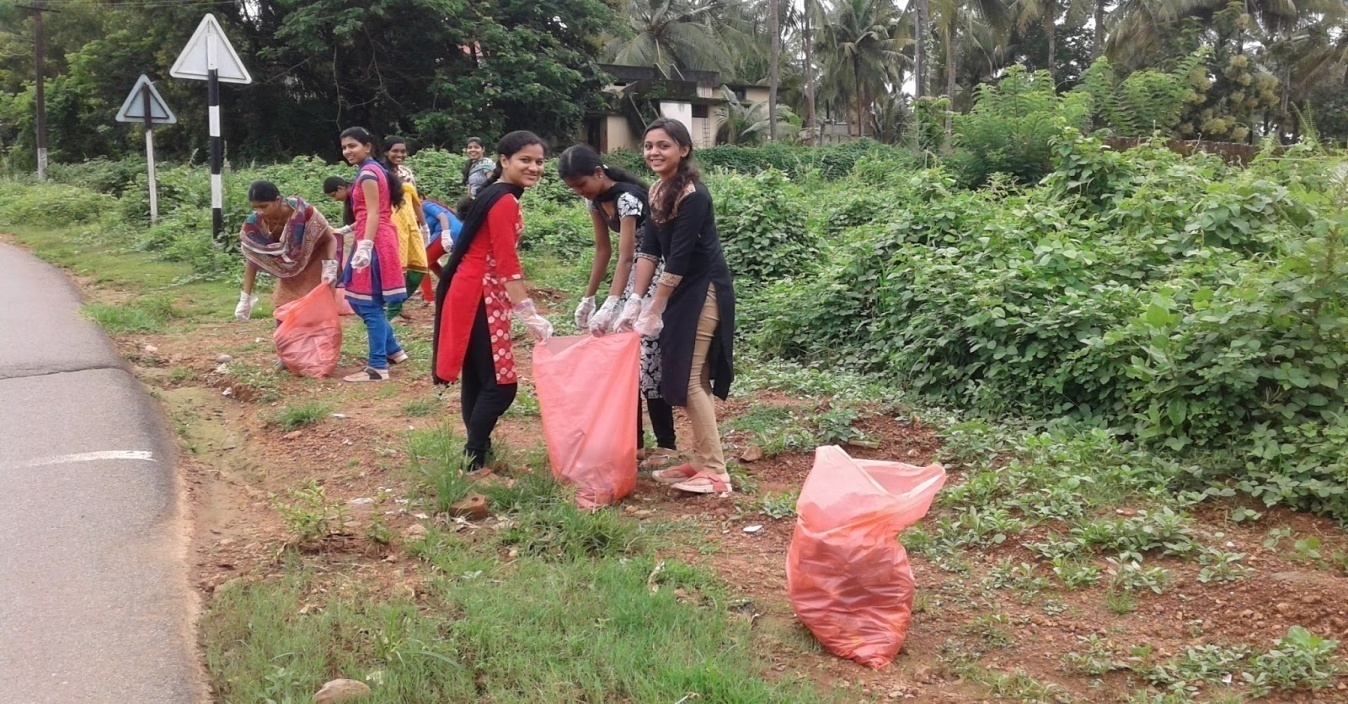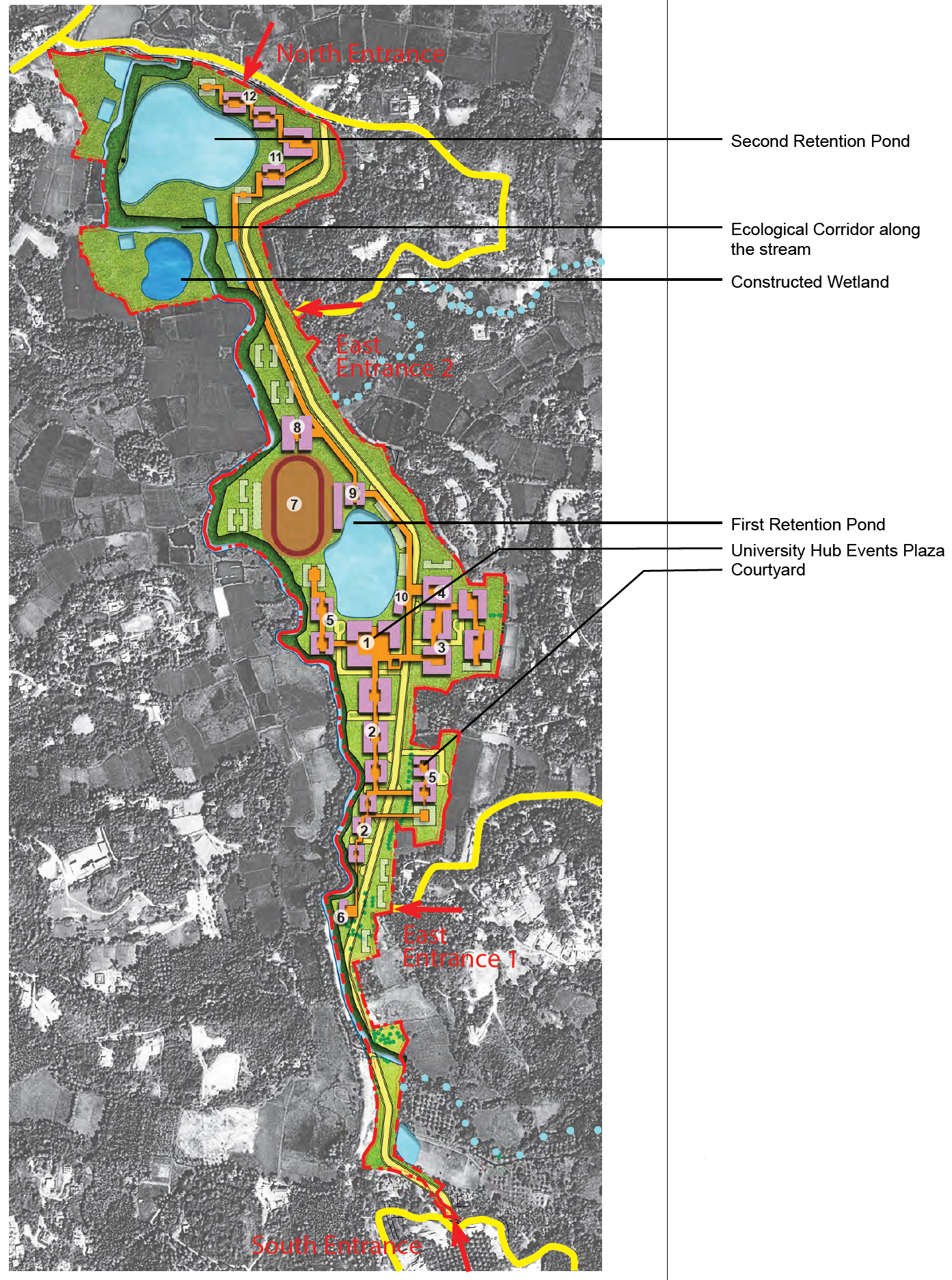
Water Conservation & Green practices on campus
NITTE (Deemed to be University) is proactively involved in water conservation mission. It has adopted environmentally friendly methods for water conservation and optimum utilization of water. Recycled water is used for maintaining the lush green landscape all-round the year. Rain water harvesting is adopted in all three Campuses of the University. Utilisation of open wells and water bodies for rainwater harvesting is practiced. Open wells are the preferred source of water in place of borewells. Its policies and strategies are focused on protection, conservation and sustainable use of its precious freshwater resources.
The university conducts environment, energy and green audits.
Biodiversity ReportEnvironment Audit Report
Energy Audit Report
Green Audit Report
Water Audit for the Campus
NitteDU tracks water requirements, waste water generation and water recycling. This is done to inform policy decisions and to create awareness about water conservation amongst it’s stakeholders.
Rainwater harvesting
Being located in region which receives high rainfall during the monsoon season, NitteDU makes efforts to manage and utilize rainwater effectively. Storm water drains separate from the general drainage system are in place.
Rainwater from roofs is collected using separate pipelines. This water is collected in raw water storage tanks which is then treated in a WTP consisting of pressure sand filter and activated carbon filter. Additionally, chlorine demand of the water is assessed and required dosage (Sodium hypochlorite diluted to 10%) is provided using automatic dosage pumps. The water is used for all domestic purposes.
The volume of rainwater in the three campuses is as follows:
- Justice K S Hegde Charitable Hospital: Approx. 2 lakhs litres of rainwater is collected with a heavy shower of 30 mins
- KSHEMA: Approx. 1.5 lakhs litres of rainwater is collected with a heavy shower of 30 mins
- Paneer campus: Approx. 1 lakh litre of rainwater is collected with a heavy shower of 30 mins
Promoting water conservation
Building practices for water conservation
NitteDU consciously incorporates water conservation practices while designing and constructing buildings on its campus.
- Construction is compliant with National Building Code of India 2016 (NBC 2016). Standards IS1172 and IS2064 related to Water Supply, Drainage and Sanitation are adhered to.
- Water conservation guidelines from Environmental Guidelines for Buildings, Ministry of Environment, Forests & Climate Change, Government of India are also referred to.
- Some of the practices followed are:
- Use of water retaining material like cloth / gunny bags etc. during curing
- Ponding” for retaining water on flat concrete structures for curing
- Use of curing chemicals / techniques to minimize water requirements
- Use of non-potable water for construction activities
- Use of water-efficient plumbing fixtures like push-cock taps
- Use of sensor-based taps
- Use of aerators, pressure inhibitors and flow regulators for ensuring constant flow
- Separate pipelines for potable water, water for recycling and treated water are provisioned for during construction
- Provision for rainwater harvesting
- Provision for management of storm water
- Rainwater storage ponds have been created in the campus for storage of storm water
- Rainwater from an artificially created storage pond from an external location near the campus is used. A MoU has been signed with the land-owner for use of this water
- Use of recycled water for flushing and gardening
Building Practices
Sensitization and training about water conservation
NitteDU undertakes sustained campaigns to encourage students and staff to save water within the campus.
- Modules on environmental sustainability, including water conservation, are included in the formal curriculum of most programs
- The National Service Scheme volunteers conduct campaigns to raise awareness about water conservation.
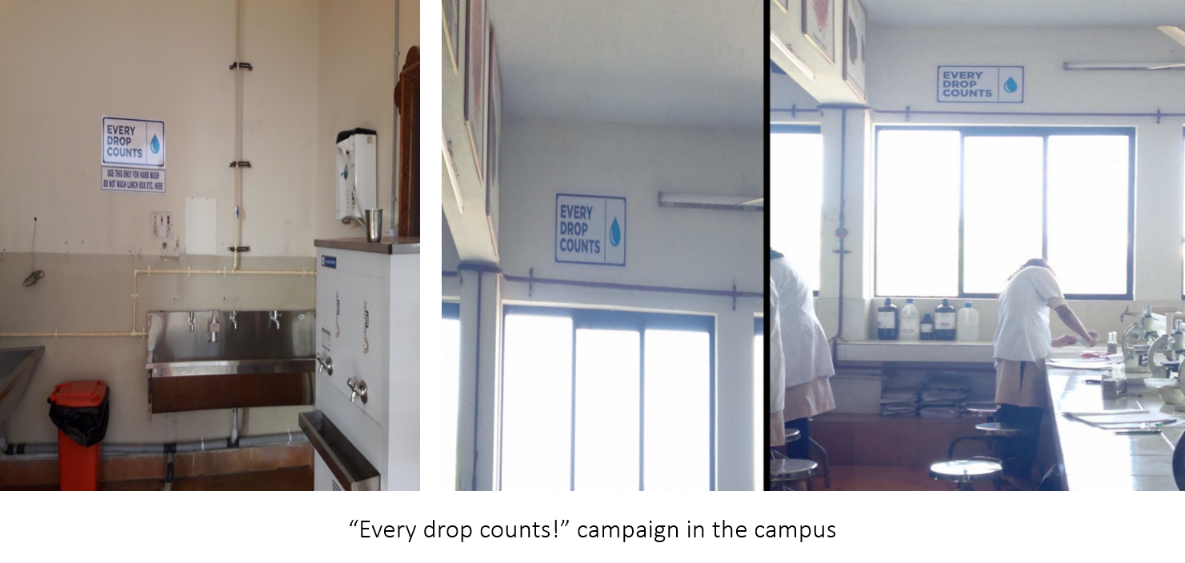
Students and staff of NitteDU are engaged in promoting responsible use of water in the community too. Some of the recent activities related to water conservation include:
- The students of the Department of Public Health, KSHEMA, have developed a short video titled "Jala" to observe World Water Day
- Nitte Institute of Architecture organized an Expert Lecture on “The Identity of Water - Traditional knowledge for a resilient future” by Ar. Mohan Rao, on Saturday, 5th December 2020, at 15.30 IST.
- Dr I Karunasagar and Dr Smitha Hegde, faculty of Nitte (Deemed to be University) gave a talk on “Water and environment” on Manipal Radio, a Community Radio station
- Public lecture on rainwater harvesting by Ms Sweata Pradhan, Assistant Professor, Nitte Institute of Architecture
- Ar. Sweata Pradhan delivered a lecture on rain water harvesting at St Aloysius College Mangalore, on 06-06-2019. This was attended by over 2000 pre-university students and teachers. It focused on the importance of rainwater harvesting and outlined of a simple method for calculating and demands for water and the available supply of water.
Micro and macro-level water conservation practices
Nitte Institute of Architecture organized a guest lecture on smart ideas for environment conservation on world water day on 22 March 2022. The hybrid mode event was intended to discuss the ideas on micro and macro-level water conservation practices in cities through case studies and discussions. The program introduced students to a new way of creating smart solutions to the commonly known problems of water conservation in villages and cities.
Nitte Institute of Physiotherapy participated in the ‘Nethravathi River and Environmental Protection Program, The Eighth Stage River Environmental Cleanup Movement and Wildlife Festival’ to signify the theme ‘Only One Earth’. The drive was carried out in collaboration with the River Environmental Protection Committee, local community organisations, Lions Club Permannuru, Ullal Solidarity forum, and the citizens of Uliya village Ullal.
http://aboutnitte.blogspot.com/2022/06/news-from-nipt-world-environment-day.html
Nitte Institute of Architecture Organized a summer school field visit to Adyanadha, A plantation site with a vernacular water storage feature to generate awareness of vernacular water conservation systems and to interact with traditional practitioners of water conservation. The students observed the site- the plantation, the home, the tunnel, and the water storage facility and its function to retain water for the crop in the area.

Students of NUCSER visited the waste water treatment plant at Mullakad, Kavoor, Mangalore on 26th November 2022. The visit led by Dr. Amit Kumar, KSHEMA was supported and facilitatedby the Mangalore Municipal Corporation and was a part of the Sustainable Development Goals (SDG 6: Clean Water & Sanitation) of the University. The students learned the importance of clean water and sanitation for a healthy society.
http://aboutnitte.blogspot.com/2022/12/news-from-nucser-field-trip-to-sewage.html
Urban interventions for conservation of water bodies in cities
Nitte Institute of Architecture organized a mid-semester review of the Urban studio with the intention of making students aware of people-centric and context-specific design intervention possibilities in urban areas with a special emphasis on intervening in natural urban water resources like lakes and rivers. The Innovations ideas from students were reviewed by the experts and sensitized students on participatory methodologies for pragmatic urban interventions in the domains of conservation of water bodies in cities.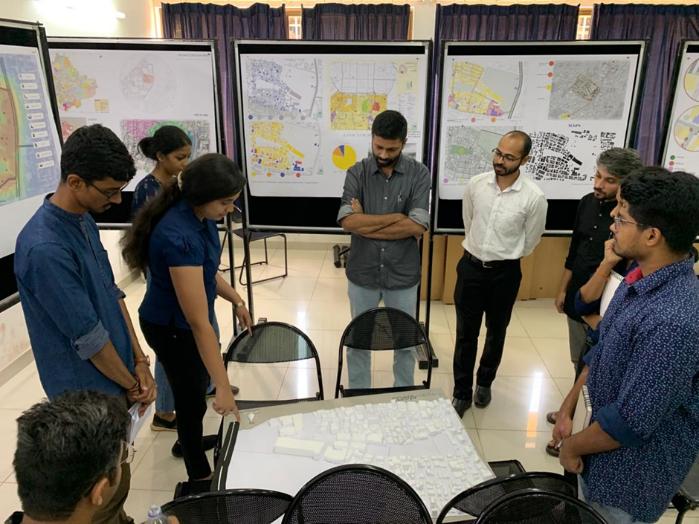
The Department of Community Medicine organized a Outreach Program, "Health education on World water Day" on 31-03-2022. The objective was to spread awareness among local population regarding the conservation of water, causes of water pollution, common water borne diseases and prevention.
https://kshemaigateway.wordpress.com/2022/03/31/health-camp-outreach-program-kshema-517/
Nitte Institute of Architecture organized a guest lecture on “Sustainable buildings and technologies” with the intention of promoting smart technology innovations in the buildings with an emphasis to optimize energy, materials, and water consumption needs.
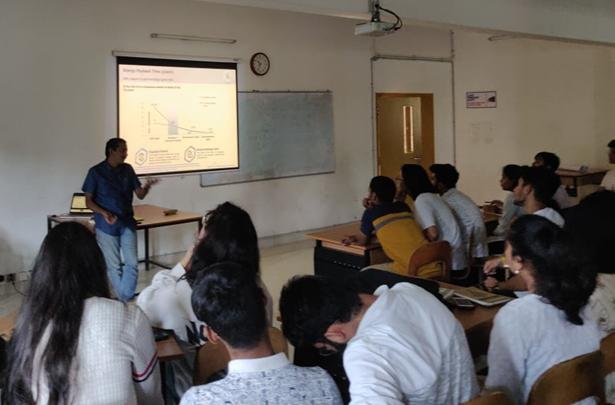
Waterfront development
Nitte Institute of Architecture hosted a field-visit to Old Bandar port of Mangalore as part of Placemaking week with the intention of understanding and identifying the opportunities for urban public space creation and waterfront development. Participants recorded the multi-sensorial experiential journey, interacted with the local community to understand the perceptions of people towards the public spaces, and connections of people with port and water, identified some key issues, and discussed some ideas for improving the quality of public spaces along with waterfront development opportunities.
The Department of Community Medicine organized a Outreach Program, "Health education on water born Disease" on 23-05-2022 at Rural health and Training Centre Sasihithlu. The residents of the village were educated regarding the importance of food and water hygiene and sterilisation by boiling drinking water.
https://kshemaigateway.wordpress.com/2022/05/24/health-camp-outreach-program-kshema-536/
Urban gardening and importance of soil conservation
Sustainable development goal cell of Nitte (DU) conducted a public outreach program on 24-11-2022 in association with Lions club Ashoknagar Mangalore on URBAN GARDENING & IMPORTANCE OF SOIL-WATER CONSERVATION. The need to conserve the ecosystem by conserving water and soil was discussed as water conservation plays an essential role in farming and urban development.
The Department of Community Medicine organized a Outreach Program, "Health education on Water borne Diseases" on 06-10-2022 at Sasihithlu RHTC. The objective of the program was to educate the members of the community on the various water borne diseases and how to prevent them.
https://kshemaigateway.wordpress.com/2022/10/07/health-camp-outreach-program-kshema-576/
The Department of Community Medicine organized a Outreach Program, "Health education on Water borne disease" on 17-11-2022 at Sasihithlu RHTC. The emphasis was given on importance of consuming clean, safe and decontaminated drinking water. Family members were educated about methods of household purification of water.
https://kshemaigateway.wordpress.com/2022/11/18/health-camp-outreach-program-kshema-585/
The Department of Community Medicine organized a Outreach Program, "Health education on water Borne Disease" on 31-12-2022 at epidemiological unit K.S hegde Hospital. The objective of the programme was to educate the community members on the symptoms of waterborne disease, prevention and management of the same.
https://kshemaigateway.wordpress.com/2022/12/31/health-camp-outreach-program-kshema-596/
Nitte Institute of Architecture Organized a summer school field visit to Adyanadha, A plantation site with a vernacular water storage feature to generate awareness of vernacular water conservation systems and to interact with traditional practitioners of water conservation. The students observed the site- the plantation, the home, the tunnel, and the water storage facility and its function to retain water for the crop in the area.
The Nitte University Center for Science Education and Research organized a program titled “Water conservation and Irrigation practices for the farmers” on 27-09-2022 at the village of Kinnigoli. The resource person Shree Padre highlighted the importance of water in every sector of the community. He focused his talk on the process and the technologies of rainwater harvesting.
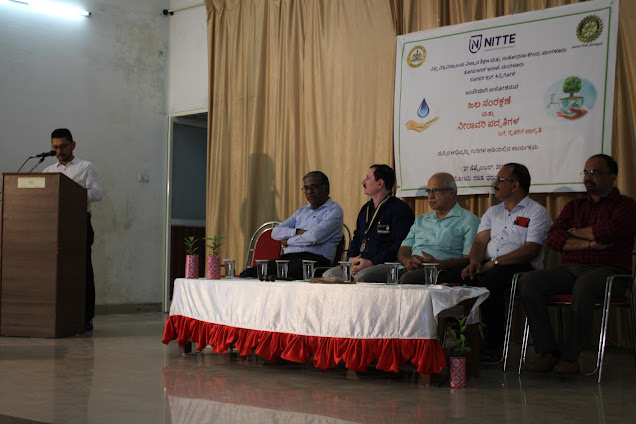
Nitte University Center for Science Education and Research organized a program for farmers and representatives from cooperative societies and research institutes, on the occasion of World Environment day 2022. A “Jatha” was organized to spread the message of the importance of saving water, soil and energy and to create an awareness on global warming and climate change.
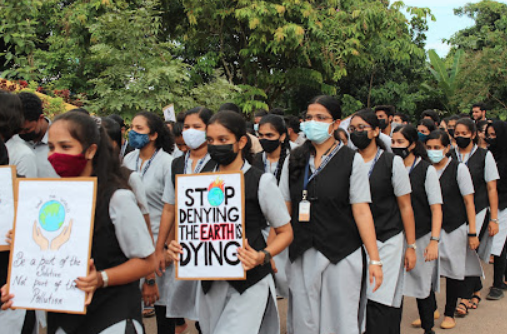
Water conservation projects with community
- NitteDU in collaboration with Physical Research Laboratory, Ahmedabad as part of DST Swarnajayanthi Fellowship Project has undertaken a project to study “Ocean alkalinity enhancement and its impacts on biogeochemical cycling.” It has been proposed that the enhanced ocean alkalinity through large scale mineral dissolution has potential to provide a solution to store large amounts of CO2 in the ocean. This project will provide concrete ideas about up to what scale ocean alkalinity can be increased without disturbing the ecosystem and otherwise. Consequences (feedback) of alkalinity enhancement will be known. This proposal is important to answer some fundamental questions on the scale of continental weathering and erosion in the geological past.
https://dstnutec.in/user/eventInfo/120 - Nitte DU has developed a technology for removal of cadmium from contaminated water using non-living, microparticular biomass. This technology holds potential for commercialization to develop biosorption agents in water filters, water purifiers and other water purification systems. It is an economically feasible, sustainable and eco-friendly technology for removal of the toxic and widely prevalent heavy metal from contaminated water bodies.
https://dstnutec.in/user/technologyTransfer - Nitte DU has published a patent on WATER QUALITY ASSESSMENT OF A RIVER BASIN UNDER FUZZY MULTI CRITERIA FRAMEWORK. In this paper fuzzy analytical hierarchy process (FAHP) has been developed to evaluate the status of water quality. A decision support mechanism has been introduced to select and prioritize stations with specific reference to five important beneficial uses namely, domestic, irrigation, aquatic life, industrial, and recreational activities.
- Nitte Institute of Architecture Organized a winter school in January 2022. The intent of this workshop was to introduce the technique of comics as a method to interpret and immerse in creative visual narratives. As part of this workshop, students prepared narratives on the life of fishermen in old bander port and created a visual art of people and water relationships. The workshop sensitized students on various details of issue identification, presentation, and focusing on city-water relationships. Students interacted with locals and gathered information related to how water plays an important role in their daily lives.
- Nitte Institute of Physiotherapy participated in the ‘Nethravathi River and Environmental Protection Program, The Eighth Stage River Environmental Cleanup Movement and Wildlife Festival’ to signify the theme ‘Only One Earth’. The drive was carried out in collaboration with the River Environmental Protection Committee, local community organisations, Lions Club Permannuru, Ullal Solidarity forum, and the citizens of Uliya village Ullal.
http://aboutnitte.blogspot.com/2022/06/news-from-nipt-world-environment-day.html
- Rejuvenating the Vrishabhavathi river through addressing the built (a student project by Ms. Kavya Amin, Nitte Institute of Architecture)
- The neighborhood of Malleshwaram, in the city of Bengaluru, was planned for the nobles and high-income class people as a modern hygiene suburb with various communities divided into eight blocks founded in the year 1889. The city being planned to provide a modern lifestyle, is presently a major chaos to the water body flowing through Malleshwaram. The tributary of Vrishabhavathi river that flows through Malleshwaram has been dumped with domestic waste, leaving the urban fabric face its back to the natural water body flowing adjacent to the houses. This concern of the river losing its importance and identity to the people and the city itself is the major identified problem in most cities. The lifestyle of the people is enhanced with the kind of context they live in. It's important to create public landscaping which creates a mutual beneficial relationship between the city dwellers and their environment. Thus, the aim of this proposal is to develop the canal edge by providing the ideal green buffer space for the development of the ecosystem which further enhances the engagement of the people with the water body. It is important for the urban fabric to be moulded in such a way as to encourage the community spaces in and out to connect with the natural sources present around. The proposal aims on the combination of a housing typology and the urban green spaces developing an ideal scenario in layering the urban fabric.
- Rejuvenation project of Sulthan Battery and its immediate context (A student project by Mr. Harikiran, Ms. Shahana and Ms. Nabeela, Nitte Institute of Architecture)
- Rivers have been playing a vital role in human history and have given birth to ancient civilizations. From the source of food to life ranging from day-to-day activities to large-scale trading.Rivers and land as a part of nature have been always been together, negotiating, shaping, and have no separate boundaries between them.But sadly, due to unplanned modern advancements and lifestyles, rivers are mainly feared, ignored, and have been differentiated. Man, due to his personal needs has been intervening between them, often causing self-destruction due to floods or drought. Mangalore, being a coastal region, celebrates its association with the sea through beaches. But what not the river. So through our studies, we have understood the present condition of the city, and its association with the river, and why it is isolated, due to several reasons like lack of accessibility, sanitation, or lack of infrastructure. Based on our studies we have made an attempt to create an opportunity to celebrate rivers and connect with them. Not to change the nature of the river, but to reclaim it and celebrate it.
- Promotion of rainwater harvesting off-campus - NitteDU purchases rainwater via a dedicated pipeline from an artificially created rainwater harvesting pond from an external location near the campus. This promotes rainwater harvesting storage at this off-campus location.
Water Recycling
Use of recycled water for gardening and toilet flushing purposes. The wastewater is collected and treated in Sewage Treatment Plants (STP). Three campus have individual STPs. The KSHEMA campus has a STP plant of handling capacity of 4,00,000 liters/day. University and Hospital campus have a plant of 8,00,000 liters/day and Paneer campus has a plant handling 2,50,000 liters/day.
Water safety and quality
All students, employees and visitors to the constituent units, sections, and centres of NitteDU have free access to clean drinking water. Drinking water is available through UV based water purifier dispensers. The quality of water is assessed periodically through both in-house and external testing.
All major buildings have separate storage facilities for potable and non-potable water. Segregated storage tanks and pipelines are available for potable water, stormwater and grey water.
Plumbing Diagram, University Buildings
Drinking water access
Collaborations for water security
| Collaboration with International Finance Corporation (IFC) for EDGE (Excellence in Design for Greater Efficiencies) Nitte University collaborates with IFC to provide training on EDGE certification. EDGE is an innovation of IFC, a member of World Bank Group. IFC created EDGE to respond to a need for a measurable and credible solution to prove business case for building green and to unlock financial investment. The aim is to achieve zero net carbon, lowest possible water uses and low embodied energy of material, a good amount of daylight, design for natural ventilation and a green, affordable, and local design. |  |
| Indo German Centre for Sustainability (IGCS), Summer School 2021 The Department of Public Health, KS Hegde Medical Academy participated in the Indo German Centre for Sustainability (IGCS), Summer School 2021, themed "Sustainable Water Management at the Saltwater – Freshwater Interface". The summer school was held between 12th & 23rd July 2021 and focused on environmental protection, water resource management, energy, land use, rural development and waste management. The school also discussed means to promote sustainable development in Germany, India and South Asia. It was Conducted by the Indo-German Centre for Sustainability, CAU Kiel University, Germany, in collaboration with IIT Madras. | 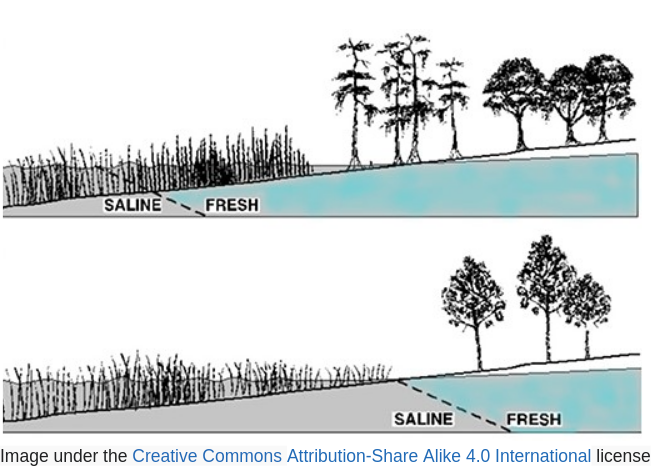 |
| The Nitte University Centre for Science Education and Research has established a “Center for Developing Sustainable Technologies for Mitigating Heavy Metal Pollution Under Changing Environment” with support from Vision Group on Science and Technology, (VGST) Department of Electronics, IT, BT and S & T, Government of Karnataka. The scope of the center includes screening for heavy metal pollution and developing technologies for mitigating such pollutants in water and soil.
More details |
 |
| NitteDU conducted a study for assessing the quality of ground water in various wards of Mangalore City Corporation. Ground water samples were collected from different parts of the city and analyzed for color, pH, turbidity, fluoride and iron content. This project helped raise awareness about ground water contamination and provided data for the City planners. |  |
| NitteDU has entered into a collaboration with the Secretary of State for Environment, Food and Rural Affairs, Govt. of United Kingdom for scientific cooperation with Centre for Environment, Fisheries and Aquaculture Science (CEFAS), UK, an EU Reference Laboratory for Biotoxins. Scientists at Nitte University Centre for Science Education and Research (NUCSER) have been working with CEFAS Scientists in areas of food safety and microbiological risk assessment for many years. When thre was an outbreak of Ciguatera fish poisoning in Mangalore, affecting over 200 people in 2016, NUCSER collaborated with CEFAS for chemical characterization of toxins through a project funded by the UK National Environmental Research Council (NERC) Emergency Fund. |  |
Medicinal Gardens
The KSHEMA campus as well as Paneer campus have medicinal gardens. A total of 125 medicinal plants are planted and cataloged for its scientific name, common name, medicinal uses and their major chemical components reported.
Indoor plants
The A.B. Shetty Memorial Institute of Dental Sciences is in the University Campus. Although this campus has the least green cover as compared to Paneer or Medical College campus, they have a good practice that targets the improvement of indoor air quality. Every common room has indoor plants which is well tended and provides healthy oxygen rich air and reduce the carbon-di-oxide released by the human occupants. The Institute has always supported the concept of Clean City Green City in college by various initiatives.
Kitchen and a terrace garden
Nitte Institute of Architecture has developed a kitchen garden as well as a terrace garden to educate the students on the design of urban horticultural practices. The kitchen garden has several vegetable crops and the a terrace garden has over 50 fruit trees such as Figs, Jamoon, Chikoo, Guava, Mango, Lemon etc.
Tree Adoption
The Students of Nitte University Centre for Science Education and Research has a good practice of tree adoption. Undergraduate student volunteers have adopted several trees on campus. They ensure proper watering and care during the dry months of summer. Weak saplings are preferred for adoption over healthy trees.
Vanamahotsava
Students actively participate in the Swachh Bharath Programs conducted regularly by the NSS unit of the University. 39 programs with nearly 4000 students and staff participation was recorded over a period for last four years. Vanamahostava is conducted during the first week of July by tree planting and conducting awareness programs. The world environment day is also conducted in the campus by planting saplings and the theme of the United Nation is deliberated eg. “Connecting people to Nature” in 2017 and “Beat plastic pollution” in 2018.
Plant a Tree on your a Birthday
Planting a sapling on birthdays is like leaving something memorable for the campus community and one can enjoy that excitement whenever they visit the campus later in life. Birthdays can be made memorable and in turn, we can improve the biodiversity of the university campus. Behalf of Nitte University Green Initiative Project (NUGIP) started “Plant a Tree on Your Birthday” in KSHEMA campus for the teaching staff. The initiative, ‘Plant a Tree on your Birthday’ was launched with the first sapling sharing its birthday with Prof. Dr. Satheesh Kumar Bhandary, Dean, KSHEMA and Prof. Dr. Sukanya Shetty, HOD, Biochemistry. Dr. Jayaprakash Shetty, Registrar KSHEMA, Dr. Smith Hegde, NUGIP Co-ordinator, Dr. Sumalatha Shetty, NSS Co-ordinator, Mr. Shashi kumar Shetty, NUGIP Green Officer (KSHEMA Campus), Dr. Nanjesh and Dr. Sachin, NSS Program Officer were present on the event.
Regular planting drives are conducted to maintain a green and clean campus. Recommendation made by the committee is implemented in the new developmental plans of the University. The University campus conducts regular air and water quality testing to confirm the availability of healthy water and air. The tests are conducted by an independent agency and validated. All parameters tested are well within the permissible limits. Thus clean air and water supply is maintained on campus.
Common transport facilities
Staff, students and other employees are strongly encouraged to avail the common transport facilities provided by the University. There are 16 buses which cater to the common mode of transportation. An additional of 6 vans of 14 seater capacity regularly commute between campuses and city to transport staff, students and other employees of the University.
The staff and students of the University have conducted several programs in-house, as well as in public schools to create awareness on cleanliness, vaccination and hygiene.
Towards a greener future
NitteDU is poised to expand its campus in Mangalore. A 100-acre parcel of land near the current campus has been ear-marked for development of new campus. In line with its commitment to creating sustainable and re-generative spaces that have minimal impact on the environment, the masterplan for developing these associated grounds is based on key strategies specific to the site that helps NitteDU set exemplary standards in the domain of sustainable landscapes.
India has pledged in the Paris Agreement 2015 to reduce emissions by 30-35% below the 2005 emission intensity of GDP by 2030. Hence aligning with the 8 missions identified under National Action Plan for Climate Change, the following fundamental concepts have been considered in the campus master planning process:
- Micro Climate Modifications
- Efficient Water Cycle
- Clean Energy
- Ecological and Biodiversity Enhancement
One of the key aspects of the plans for this development is the preservation of existing water bodies and tree cover in the land. The water bodies sustained by rainwater which will be important source of water for the campus community. These water bodies will also help in preserving and supporting the biodiversity of the campus.
More Details
Strategies to minimise physical, chemical and biological alterations of related aquatic ecosystems
The policies and strategies of Nitte (DU) are focused on the protection, conservation, and sustainable use of its precious freshwater resources with minimal alteration of the natural water ecosystem.
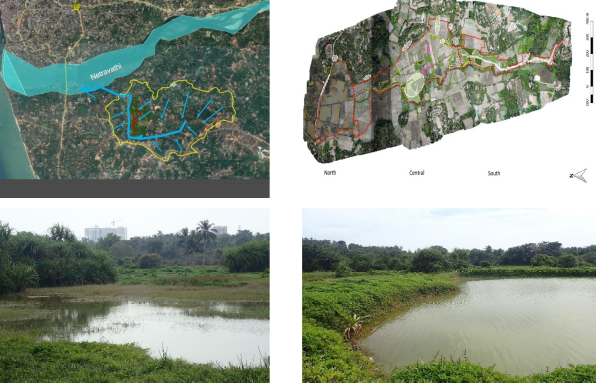
Strategies for minimum alternation of natural water ecosystem:
Enable natural paths for groundwater flow:Nitte campus development plan includes the design and development of natural water flow trenches that lead to a natural collection pond. Such trenches are developed using the natural contour of the terrain.
Retaining natural ground surfaces for water flow:
The local terrain is rich in laterite soil. The construction of bunds for the flow of water is designed using laterite bricks instead of concrete facilitating minimal alteration to surface flowing water on campus.
Conservation and protection of existing natural water ecosystems:
The new campus is located in the brackish water region of the Netravati River. With a strong intent of conservation. The campus is planned to build with water as the theme of the campus. Special attention is paid to the retention of the feeding and nesting habitat of the aquatic birds, fishes and plants.
Conduct research and monitoring of water quality:
NUCSER, Nitte DU conducts regular monitoring of water quality, biodiversity, and ecosystem health to identify emerging issues and support scientific research to better understand the dynamics of aquatic ecosystems and inform conservation strategies.
Providing education to the community:
Nitte DU always engages with the local communities in conservation efforts and educate them about the importance of maintaining healthy aquatic ecosystems. To foster a sense of responsibility and ownership among communities for the protection of water resources. This includes awareness programs to protect wetlands, mangroves, and other critical habitats that serve as nurseries and breeding grounds for many aquatic species.
Proper waste Management:
Nitte DU in collaboration with Mangala Resource Management Pvt. Ltd. Initiated the proper waste disposal practices to prevent pollution of water bodies. It promotes recycling and waste reduction measures to minimize the environmental impact of waste.
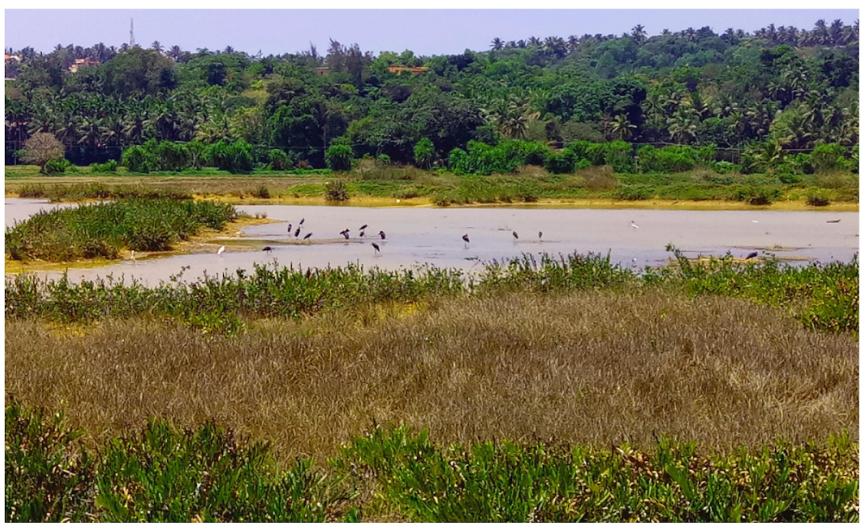
Monitoring the health of aquatic ecosystems
Monitoring the health of aquatic ecosystems involves a systematic approach. The monitoring parameters adopted by Nitte DU are to measure the temperature, pH, dissolved oxygen, nutrient levels, and the presence of key species.
Water quality analysis:
-
Fresh water sources at the campus
Nitte DU undertakes water quality analysis within its local vicinity every year. The campus harbours 4 natural lakes and an open well. The water quality of the waterbodies is sampled to maintain and monitor health of the aquatic ecosystems.
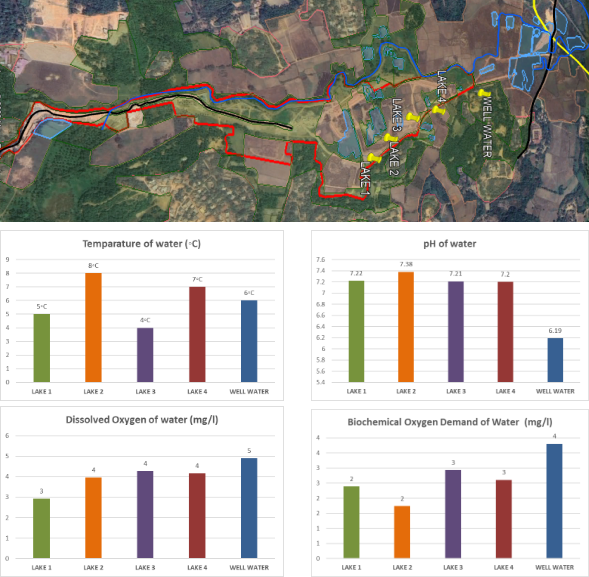

-
Treated wastewater:
The quality of the treated wastewater is monitored prior to disposal of the same for watering plants. The drinking water well samples are monitored for various parameter for potability and usage.
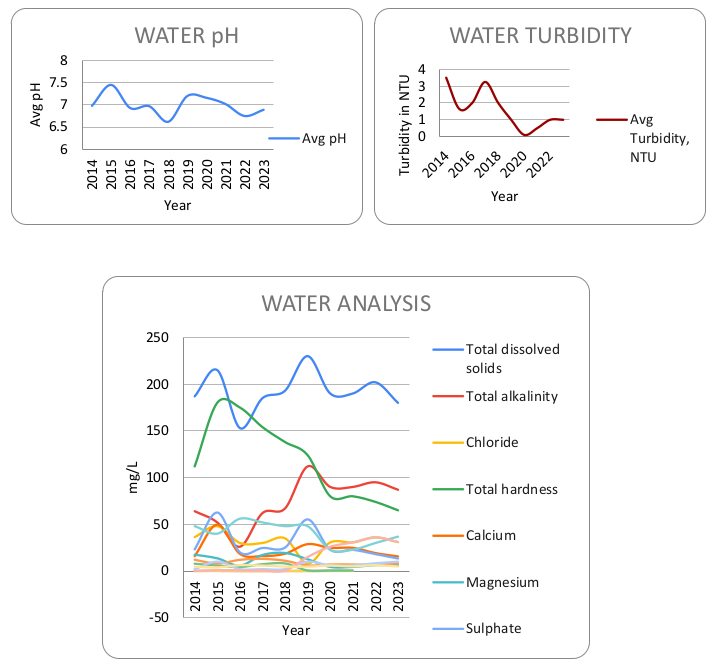

-
Fresh water sources in the local area:
Nitte DU conducted study on the geospatial distribution of Fluoride and Iron in natural water sources within Mangalore City. Through meticulous research and analysis, the study aims to provide a comprehensive understanding of the presence and variability of these elements, contributing valuable insights for water quality management and public health initiatives in the region.
https://www.thieme-connect.de/products/ejournals/abstract/10.1055/s-0042-1760322
Watershed Management
| Nitte is dedicated to long-term watershed management. Our watershed management strategy reflects our commitment to environmental responsibility and the well-being of the local community. By implementing these measures, we aim to protect and enhance the natural resources in our region, fostering a culture of sustainability and responsible water resource management. We are dedicated to ensuring that our campus and community continue to thrive in harmony with the environment, and we look forward to a future where our watershed management efforts serve as a model for others to follow. | 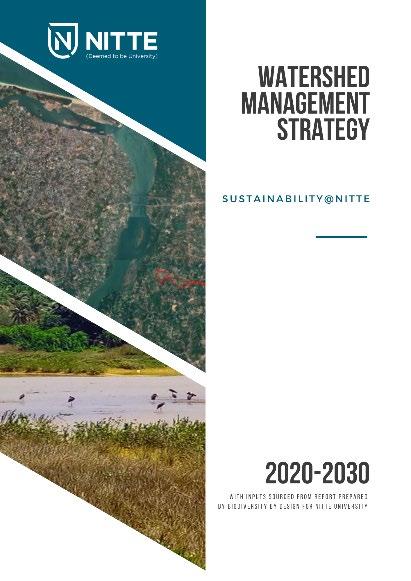
Click here for Report |


